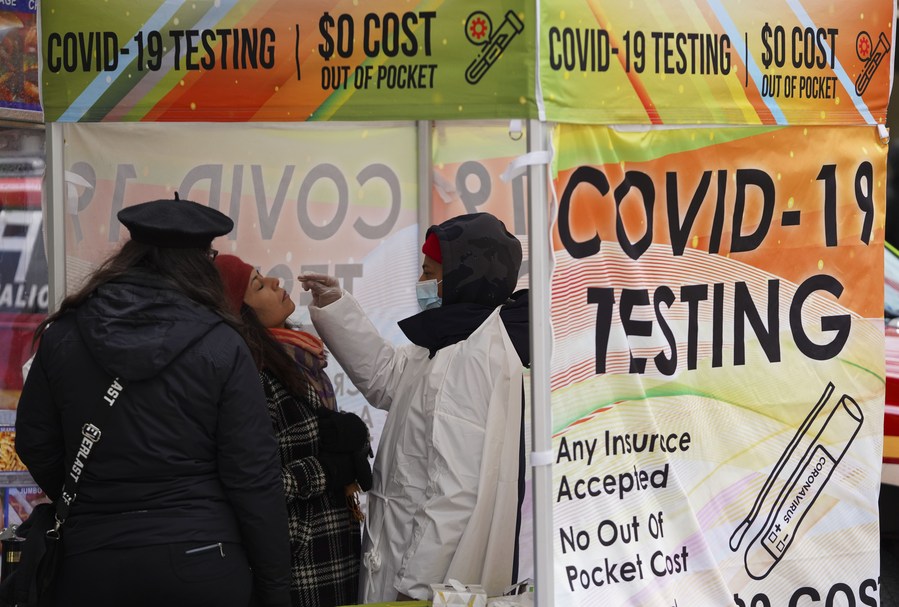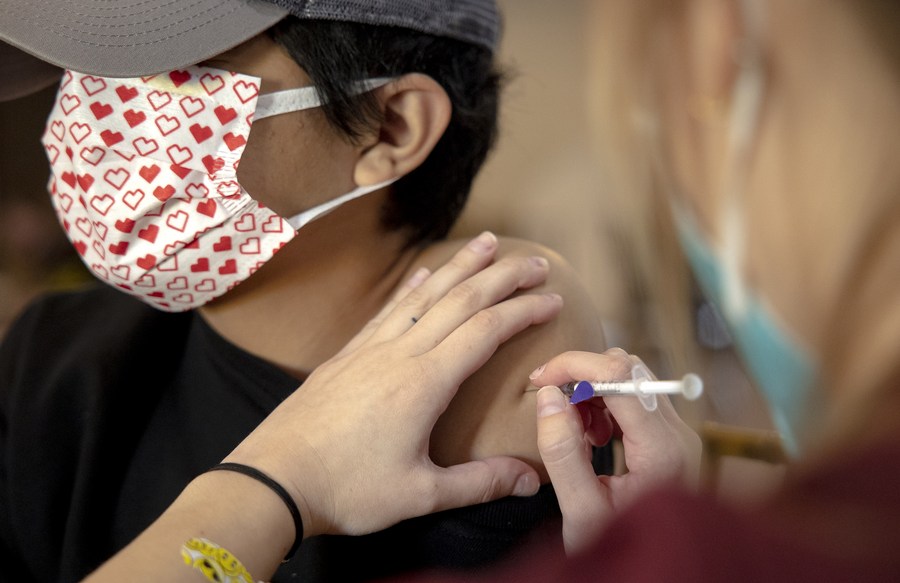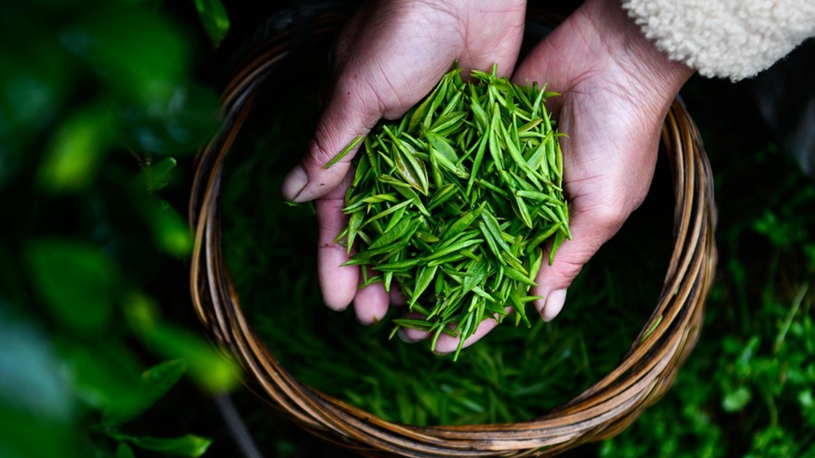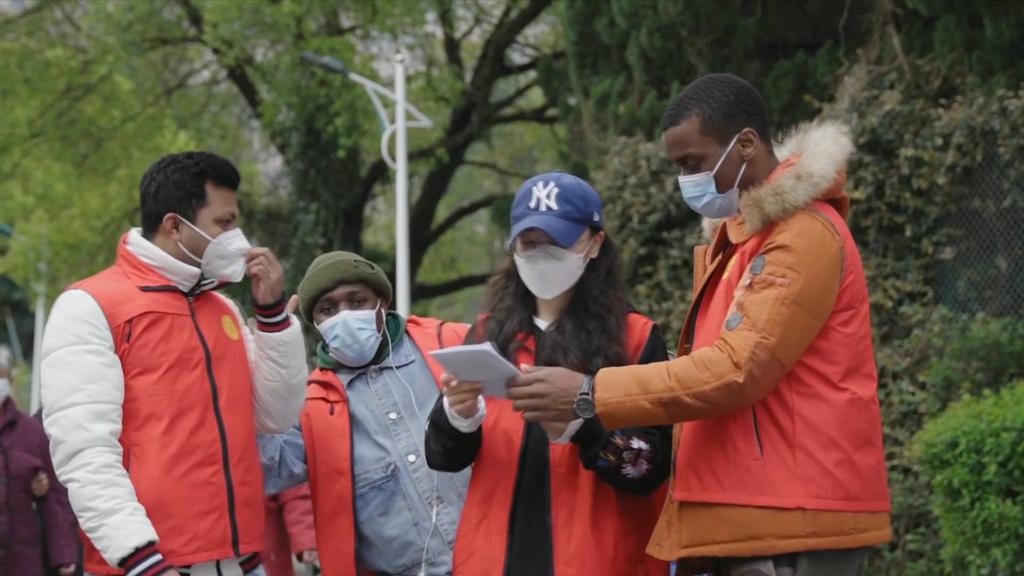
A medical worker collects a swab sample from a woman at a COVID-19 testing site in New York, the United States, March 29, 2022. (Xinhua/Wang Ying)
Deaths among American nursing home residents from COVID-19 appear to be at their lowest levels since the coronavirus first swept the country more than two years ago, according to the U.S. Centers for Disease Control and Prevention.
NEW YORK, April 4 (Xinhua) -- The United States is promoting a second booster vaccine to protect aged people and those with underlying conditions or chronicle illnesses, as the average daily COVID-19 deaths dropped to 649 nationwide on Sunday with a minus 41 percent change over 14 days.
NURSING-HOME DEATHS DOWN
Deaths among American nursing home residents from COVID-19 appear to be at their lowest levels since the coronavirus first swept the country more than two years ago, according to the most recent data from the U.S. Centers for Disease Control and Prevention (CDC).
Some 67 residents died during the week ending March 27. While that number could be adjusted in the coming weeks, it mirrors the lows last reached during June 2021 before facilities were hit with the Delta and Omicron variants, The New York Times cited the data.
Cases among nursing home residents rose sharply in the fall and winter, with deaths reaching 1,500 in January prior to a steady decline. Experts, however, raised little reason for complacency, as this group remains highly vulnerable to the virus for their age and underlying medical conditions.
Amid growing concern over a highly contagious subvariant of Omicron, with booster shots proved protective against severe illness, federal regulators already authorized second booster shots of the Pfizer-BioNTech and Moderna coronavirus vaccines last week.
SECOND BOOSTER CONFUSION
The federal government offered little detailed guidance about who should get the additional booster dose and when. Instead, the CDC said on Tuesday that immunocompromised and older Americans could get a second booster while stopping short of recommending they do so.
CDC Director Rochelle Walensky said that those most likely to benefit fall into two categories: those 65 and older; or anyone 50 and older with underlying medical conditions who are at higher risk for severe disease from COVID-19.

A man receives a dose of COVID-19 vaccine at a vaccine clinic in San Antonio, Texas, the United States, Jan. 9, 2022. (Photo by Nick Wagner/Xinhua)
Some doctors and experts argued that "the agency's scant guidance left them responsible for complicated clinical decisions in a landscape with unclear and constantly evolving data," "leaving them unprepared and confused by the policy shift," reported The Washington Post on Saturday.
However, other experts agreed with CDC's decision, saying that risk varies widely from person to person, and doctors and patients should have the opportunity to make individual choices about a fourth shot based on a slew of factors, according to the report.
DIABETES PATIENTS WORRIED
After older people and nursing home residents, perhaps no group has been harder hit by the pandemic than people with diabetes, reported The New York Times on Sunday. Recent studies suggest that 30 to 40 percent of all coronavirus deaths in the United States have occurred among people with diabetes.
"People with diabetes are especially vulnerable to severe illness from COVID, partly because diabetes impairs the immune system but also because those with the disease often struggle with high blood pressure, obesity and other underlying medical conditions," said the report.
Diabetes patients hospitalized with COVID-19 spend more time in the ICU, are more likely to be intubated and are less likely to survive, according to several studies, one of which found that 20 percent of hospitalized coronavirus patients with diabetes died within a month of admission.
"Though researchers are still trying to understand the dynamics between the two diseases, most agree on one thing: uncontrolled diabetes impairs the immune system and decreases a patient's ability to withstand a coronavirus infection," the report added. ■












